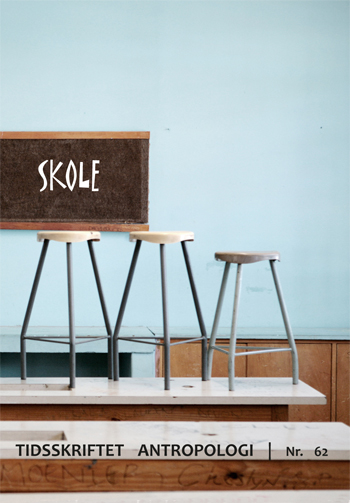Uddannelse og opposition: Marginalisering og manglende medborgerskab i den farvede township Manenberg
DOI:
https://doi.org/10.7146/ta.v0i62.27358Resumé
Karen Waltorp: Education & Opposition. Marginalization and Lack of Citizenship in the Coloured Township of Manenberg
Young and old alike speak of education as an ideal in the coloured township Manenberg in South Africa. In practice, though, 70 percent of the young men and women do not graduate from high school, and only a small number of those who do graduate study further. Education is a widely recognized form of “symbolic capital”, but among subcultures that are in opposition to the established community, education does not necessarily result as symbolic capital. The absence of a feeling of citizenship among young men and women acts to constrain them in their educational endeavours through subtle interplay of social, political and economic barriers in the specific South African complex of race, ethnicity and class. Through a juxtaposition of the concepts “street culture”, “counter-school culture” and “intimate culture” this article analyzes the dynamic of the specific opposition to education that exists in Manenberg, where alternative value systems are negotiated through social praxis. The alternative value systems of the local “intimate culture” and “street culture”, are not constructed in a vacuum, but reflect a specific historical oppression, categorization and a marginalized political and economic situation in the new South Africa. The lack of sense of citizenship across all generations and a “counter-school culture” among youth, originating in the “street culture” and “intimate culture”, create a dynamic that leaves limited space for maneuvering for young men and women. The article discusses this on the basis of two polar opposites: the young ex-gang member Desmond and the potential role model Mariam.
Keywords: Education, opposition, marginalization, “counter-school culture”, “intimate culture”, South Africa.
Downloads
Publiceret
Citation/Eksport
Nummer
Sektion
Licens
Ophavsretten til artiklerne i Tidsskriftet Antropologi tilfalder forfatteren.
Artikler publiceret i Tidsskriftet Antropologi må citeres, downloades og videresendes for ikke-kommerciel brug, under forudsætning af normal akademisk reference til forfatter(e) samt tidsskrift, årgang, nummer og sider. Artiklerne må kun genudgives med eksplicit tilladelse fra forfatter(e) og tidsskriftet.


